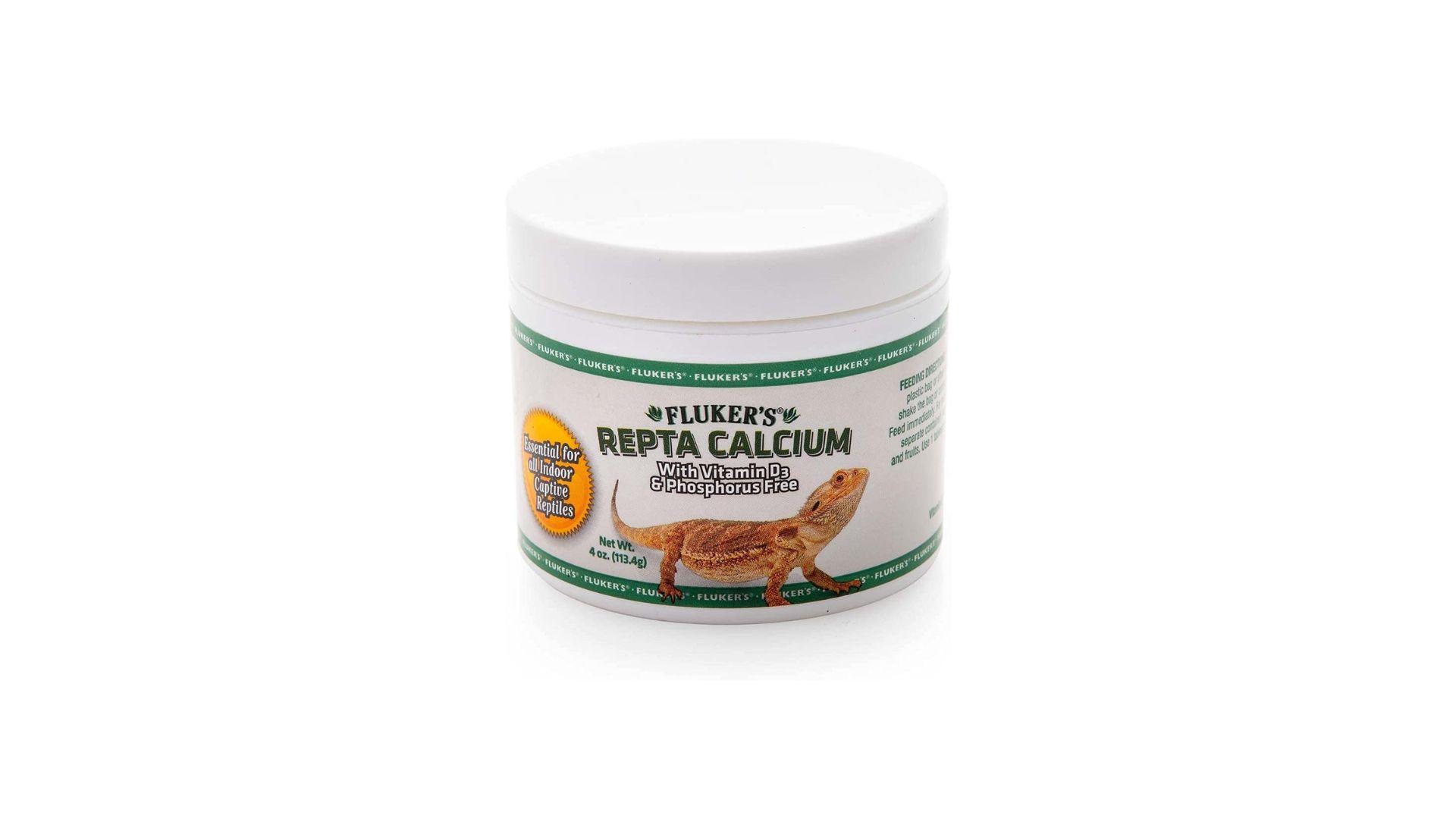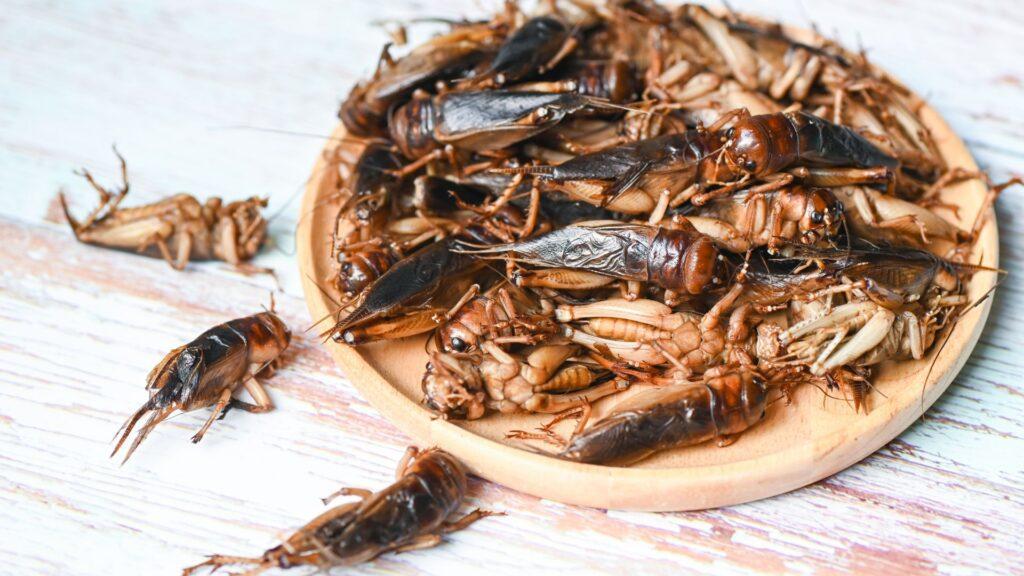
Key Takeaway:
- Calcium is an essential nutrient for crested geckos, as it plays a critical role in bone growth and development.
- A balanced calcium-to-phosphorus ratio (ideally 2:1) is important for crested geckos to maintain proper nutrition and avoid health problems like metabolic bone disease.
- Providing a varied diet that includes calcium-rich foods, as well as calcium supplements as needed, can help ensure that crested geckos receive the necessary amount of calcium in their diet.
Calcium is an essential nutrient that plays a critical role in the development and maintenance of healthy bones, teeth, and other bodily functions in reptiles, including crested geckos.
However, the question of whether crested geckos need calcium in their diet or not can be complex, and there are several factors to consider.
In this article, we will explore the importance of calcium for crested geckos, how much calcium they need, and the best sources of calcium to keep them healthy and thriving.
Do Crested Geckos Need Calcium?
Yes, crested geckos need calcium as it is an essential nutrient that is crucial for the development and maintenance of their bones, teeth, and other bodily functions.
Calcium is necessary for proper muscle and nerve function, blood clotting, and the release of hormones and enzymes in the body.
Without adequate calcium, crested geckos may develop health problems such as metabolic bone disease, which can cause deformities, weakness, and even death.
Crested geckos in the wild obtain calcium through their diet of insects, fruit, and nectar.
In captivity, it can be more challenging to provide the necessary amount of calcium, which is why it is crucial to ensure that they receive a balanced diet and adequate supplementation of calcium.
A Brief Introduction To A Crested Gecko’s Calcium Sacs

A crested gecko has tiny pouches inside its mouth, located on the roof of the mouth, that store excess calcium.
These tiny pouches are called calcium sacs.
Since female crested geckos need more calcium to produce strong and healthy eggs, they have larger calcium sacs than male crested geckos.
Looking at the calcium sacs of your crested gecko can give you an early indication of potential calcium deficiency in your pet.
If the calcium sacs of your crested gecko are round and white, they are healthy and have sufficient calcium reserves.
But gray or black calcium sacs can be an indication of calcium deficiency.
Why Do Crested Geckos Need Calcium?
Crested geckos, like all reptiles, require calcium for proper bone growth and development.
Calcium is an essential mineral that helps form the structure of bones, teeth, and eggshells, and it is also necessary for muscle and nerve function.
In the wild, crested geckos get calcium by consuming a variety of insects, fruits, and vegetation.
However, in captivity, their diet can be limited, and they may not receive enough calcium through their food alone.
This can lead to a calcium deficiency, which can result in weakened bones, stunted growth, and other health problems.
To ensure that your crested gecko gets enough calcium, it is important to provide a calcium supplement.
This can be done by dusting their food with a calcium powder, or by offering calcium-rich foods such as calcium-fortified insects or calcium-rich fruits and vegetables.
Without adequate calcium, crested geckos may suffer from metabolic bone disease, a condition that can cause severe pain, deformities, and even death.
Therefore, it is crucial to make sure that your crested gecko receives the proper amount of calcium in their diet to maintain good health and prevent these serious health issues.

How Often Do Crested Geckos Need To Consume Calcium?
Crested geckos require calcium regularly to maintain their health and well-being.
The frequency with which they need to consume calcium will depend on a variety of factors, including their age, size, diet, and activity level.
Generally, it is recommended to provide calcium supplements to crested geckos at every feeding, especially for young and growing geckos.
This can be done by dusting their food with a calcium powder that contains vitamin D3, which helps them absorb the calcium.
For adult crested geckos, it is usually sufficient to provide calcium supplements two to three times a week.
However, if your gecko is pregnant, nursing, or has a health condition that affects its calcium metabolism, it may require more frequent supplementation.
It is important to monitor your crested gecko’s calcium intake and adjust their supplementation as needed.
Over-supplementation can also be harmful to their health, so it is important to follow recommended guidelines and consult with a veterinarian if you have any concerns about their diet or health.
Can You Give Calcium Supplements To Crested Geckos?
Yes, it is recommended to provide calcium supplements to crested geckos to ensure that they receive adequate calcium in their diet.
Calcium supplements can help prevent calcium deficiency, which can lead to health issues such as weakened bones and muscle spasms.
There are different types of calcium supplements available for crested geckos, including calcium powders that can be dusted on their food and calcium gel that can be offered as a treat.
It is important to choose a high-quality calcium supplement that contains vitamin D3, which helps the gecko absorb the calcium.

When offering calcium supplements to your crested gecko, it is important to follow recommended guidelines for the amount and frequency of supplementation based on your gecko’s age, size, and diet.
Over-supplementation can be harmful to their health, so it is important to monitor their calcium intake and consult with a veterinarian if you have any concerns.
In addition to offering calcium supplements, it is also important to provide a balanced and varied diet that includes calcium-rich foods such as insects, fruits, and vegetables.
A healthy diet combined with appropriate calcium supplementation can help ensure the long-term health and well-being of your crested gecko.
Foods/Insects/Larvae/Fruits That Are Rich In Calcium
There are several foods, insects, larvae, and fruits that are rich in calcium and can help supplement the calcium intake of crested geckos. Here are some examples:
- Insects: Crickets, mealworms, waxworms, and black soldier fly larvae are all good sources of calcium for crested geckos.
- Larvae: Silkworms and hornworms are both high in calcium and can be a nutritious addition to your crested gecko’s diet.
- Fruits: Fruits such as figs, kiwi, and blackberries are all good sources of calcium and can be offered as a treat to your gecko.
- Vegetables: Dark leafy greens such as kale, collard greens, and turnip greens are all excellent sources of calcium and can be offered to your gecko as part of a balanced diet.
- Calcium-fortified insects: Some breeders offer insects that have been fed a calcium-rich diet or dusted with a calcium supplement to increase their calcium content.
It is important to note that while these foods are high in calcium, they should not be relied on as the sole source of calcium for your crested gecko.
Calcium supplements are still necessary to ensure that your gecko receives the proper amount of calcium in their diet.
Additionally, some of these foods may be high in phosphorus, which can interfere with calcium absorption, so it is important to offer a balanced diet that includes a variety of foods.
Do Crested Geckos Need Calcium With D3?
Yes, crested geckos require calcium with vitamin D3 for proper bone growth and development.
Vitamin D3 helps the gecko absorb and utilize calcium from their diet, and without it, they may not be able to effectively utilize the calcium they consume.
In the wild, crested geckos obtain vitamin D3 through exposure to sunlight, but in captivity, they may not receive enough UVB radiation to produce adequate amounts of vitamin D3.
Therefore, it is important to offer a calcium supplement that contains vitamin D3.
When choosing a calcium supplement, look for one that is specifically formulated for reptiles and contains appropriate levels of calcium and vitamin D3.
It is also important to follow recommended guidelines for the amount and frequency of supplementation based on your gecko’s age, size, and diet.
However, it is also important not to over-supplement with vitamin D3, as excessive amounts can be toxic to crested geckos.
Therefore, it is important to monitor your gecko’s calcium intake and consult with a veterinarian if you have any concerns about their diet or health.

How To Add Calcium To A Crested Gecko’s Diet
There are several ways to add calcium to a crested gecko’s diet:
Dusting food
One of the easiest ways to add calcium to a crested gecko’s diet is by dusting its food with a calcium powder that contains vitamin D3.
You can use a small plastic bag or container to shake the insects or fruit with the powder. Make sure the calcium powder is finely ground and sticks to the food.
Offer calcium-rich foods
You can offer your crested gecko a variety of calcium-rich foods such as insects, fruits, and vegetables.
Insects like crickets, mealworms, waxworms, and black soldier fly larvae are all good sources of calcium. Fruits such as figs and kiwis are also good sources of calcium.
Use calcium gel
Calcium gel is a commercial product that can be offered to crested geckos as a treat.
It can be spread on the side of the enclosure or offered in a dish for the gecko to lick off.
Use calcium-fortified insects
Some breeders offer insects that have been fed a calcium-rich diet or dusted with a calcium supplement to increase their calcium content.
This can be a good way to increase the calcium intake of your crested gecko.
Calcium To Phosphorous Ratio In A Crested Gecko’s Diet
The calcium-to-phosphorus ratio in a crested gecko’s diet is an important consideration for their health.
A balanced calcium-to-phosphorus ratio is essential for proper bone growth and development.
The ideal ratio for crested geckos is generally considered to be 2:1 calcium to phosphorus.
Many insects and fruits commonly fed to crested geckos are high in phosphorus, which can throw off the calcium-to-phosphorus ratio in their diet.
Therefore, it is important to offer a variety of foods to maintain a balanced ratio.
Dark leafy greens like kale, collard greens, and turnip greens are good sources of calcium and have a favorable calcium-to-phosphorus ratio.
In addition, calcium supplements that contain vitamin D3 are often necessary to ensure that crested geckos receive enough calcium in their diet.
However, it is important to choose a calcium supplement that does not have added phosphorus, as this can further throw off the calcium-to-phosphorus ratio.

What Happens When A Crested Gecko Lacks Calcium?
If a crested gecko lacks calcium in its diet, it can develop a condition known as metabolic bone disease (MBD).
MBD is a serious condition that affects the gecko’s bone development and can cause a range of health problems.
Some of the symptoms of MBD in crested geckos include:
- Soft or rubbery jawbones
- Weakness or lethargy
- Difficulty climbing or gripping surfaces
- Tremors or twitching muscles
- Deformed limbs or tail
- Decreased appetite
If left untreated, MBD can lead to fractures, organ failure, and even death.
It is important to recognize the symptoms of MBD and take steps to correct calcium deficiencies before the condition progresses.
How To Treat Calcium Deficiency In A Crested Gecko
If you suspect that your crested gecko has a calcium deficiency or metabolic bone disease, it is important to consult with a veterinarian experienced in reptile care.
They will be able to diagnose the condition and recommend the appropriate treatment.
Treatment for calcium deficiency in crested geckos often involves calcium supplementation, changes to the diet, and environmental adjustments.
The specific treatment plan will depend on the severity of the deficiency and any other underlying health conditions.
Here are some general steps that may be included in the treatment of a calcium deficiency in a crested gecko:
Calcium supplementation
The veterinarian may recommend calcium supplements with vitamin D3 to correct the deficiency. The supplement can be administered orally or injected.
Adjust diet
The veterinarian may recommend changes to the crested gecko’s diet to include more calcium-rich foods and achieve a balanced calcium-to-phosphorus ratio.
Environmental adjustments
Proper environmental conditions, such as temperature, humidity, and lighting, are important for the overall health of the crested gecko. The veterinarian may recommend adjustments to ensure the gecko is living in an optimal environment.
Follow-up care
Regular checkups with the veterinarian will be necessary to monitor the crested gecko’s progress and make any necessary adjustments to the treatment plan.
Summary
Prevention is the best way to avoid calcium deficiencies and metabolic bone disease in crested geckos.
Providing a balanced diet, calcium supplements as needed, and optimal environmental conditions can go a long way in preventing these conditions from occurring in the first place.

